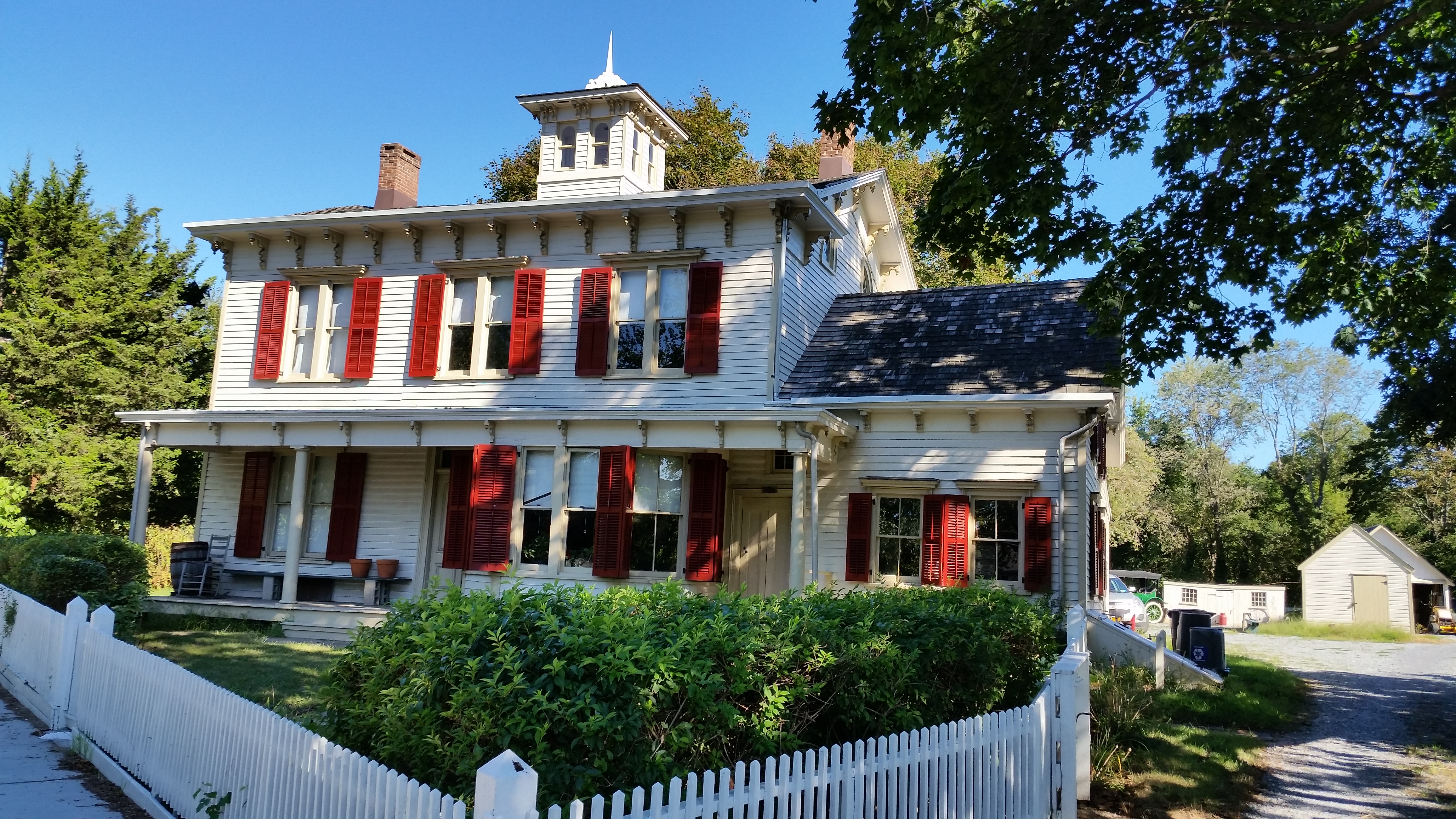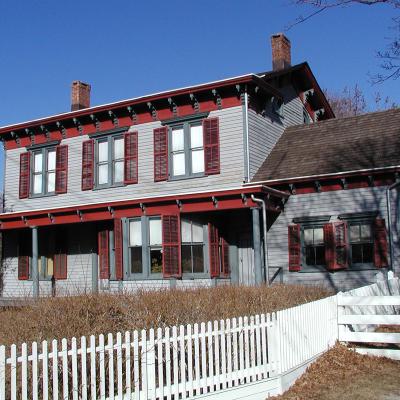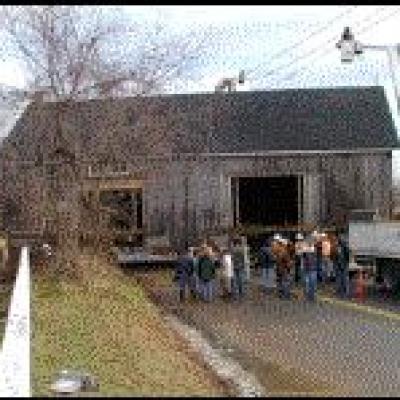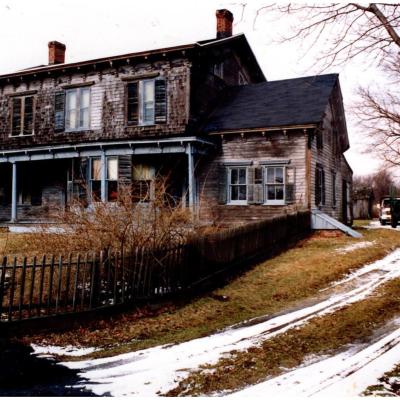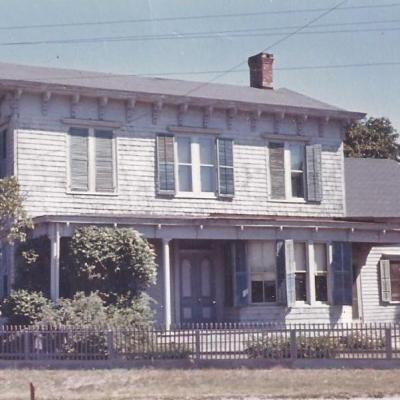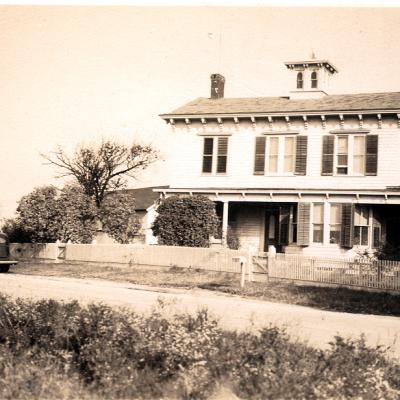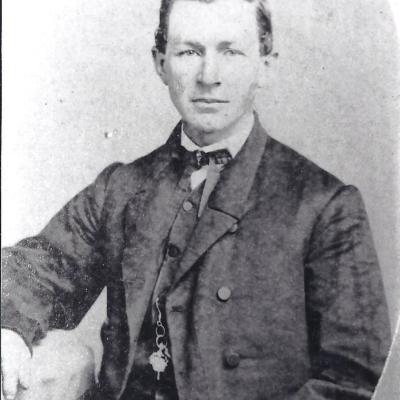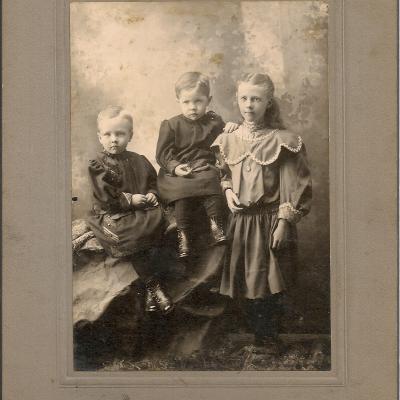The original one-and-one-half story farmhouse was built in the 1750s. This austere house was expanded in four stages, the last being the addition of a second story in 1860 by Alexander Gardiner for his mother Fanny, who was living here at the time.
--
The Smith Murder: On November 13th, 1842, Alexander Smith and his wife Rebecca were brutally murdered in the front parlor of their home, apparently while enjoying their evening tea. The couple was well respected in the community, and their only child, Fanny, had married Joel B. Gardiner from another prominent Greenlawn family. It was believed that the motive for the terrible crime was theft. Following the "Horrible Murder" of his maternal grandparents, Alexander's mother inherited the estate and continued to operate the farm. When he was fourteen, his father died leaving him with the major responsibilities of over-seeing the farm. At the age of 23, Alexander purchased 80 acres from his mother; married Elizabeth Jarvis and established a farm just north of this property.
Alexander Gardiner: Alexander S. Gardiner, a descendant of the Gardiner family of the East End of Long Island, was born in the Huntington area on March 4th, 1835. His ambitious character was evident at an early age. As a boy, he was enamored with tools of all kinds and had a small blacksmith shop that he expanded on as he got older, gradually learning to make and repair the parts of all farm implements.
Greenlawn's Entrepreneur: Alexander became quite an entrepreneur and operated a large cider mill, sawmill, a brickyard, a gristmill and an icehouse. He sold the latest farm machinery, wagons, and later had an automobile dealership. Over the years he acquired 600 acres of farmland and kept expanding on his ventures. He had interests in a cannery, sailing vessels, the Huntington Station Fair Grounds, and he pioneered the chicory crop on Long Island. Alexander Gardiner was considered one of the leading farmers in Huntington and he earned his title as Greenlawn’s “Pickle Pioneer,” by proposing that local farmers try growing pickles. He developed “Green Prolific Pickle Seeds,” built processing plants, and established a freight depot along the railroad tracks. Greenlawn soon had a thriving Pickle Industry. In 1873, Gardiner’s barns and mills were destroyed by a fire which the newspapers of the day called “the largest destruction of farm property by fire ever known on the island”. Undaunted, Alexander rebuilt everything before six months had elapsed.
John Gardiner & Last Generation: After Alexander died in 1914, his estate was divided and left to his surviving children, including John A. Gardiner who obtained the Smith-Gardiner property. John married Everetta Purdy and had 4 children: Alice (1896-1985), Zella (1898-1905), and the twins Harold (1902-1982) and Herbert (1902-2003). Herbert and Harold were both born in the farmhouse. They were last generation to live in the house. The twins lived in the house their entire lives with their sister, Alice. They never got married, and never lived anywhere else.
Last Resident: In 2002, Herbert Gardiner, the last living family member, bequeathed the property to the Greenlawn-Centerport Historical Association after befriending our current Treasurer, Tony Guarnaschelli. It was his wish to name it in memory of his father John. The farm is now on the National Register of Historic Places, protecting this gem for future generations.
The ongoing effort to restore the Farm and open it to the public represents the communities' dedication to the preservation of local history. Such an effort would not be successful without the continued support on the community and the help of volunteers.
Come Visit Us!

